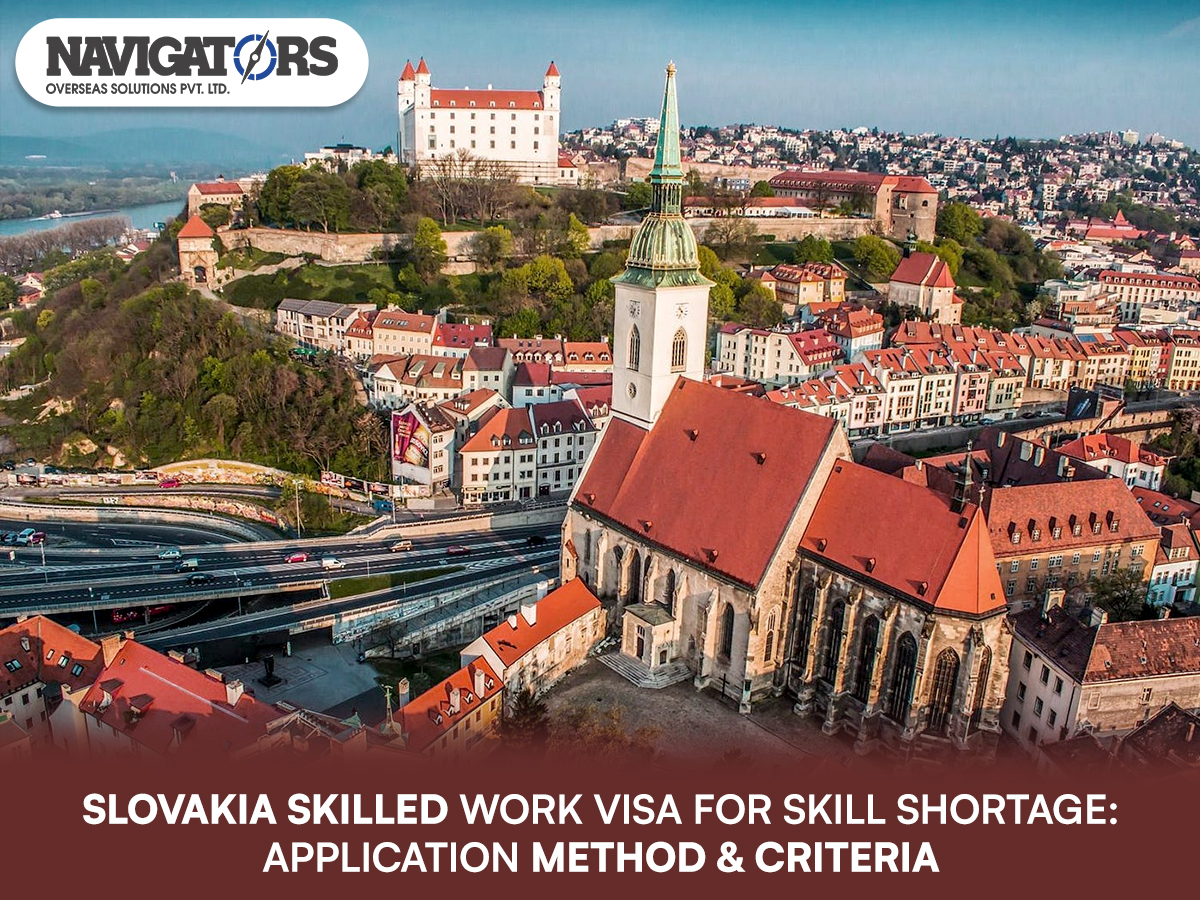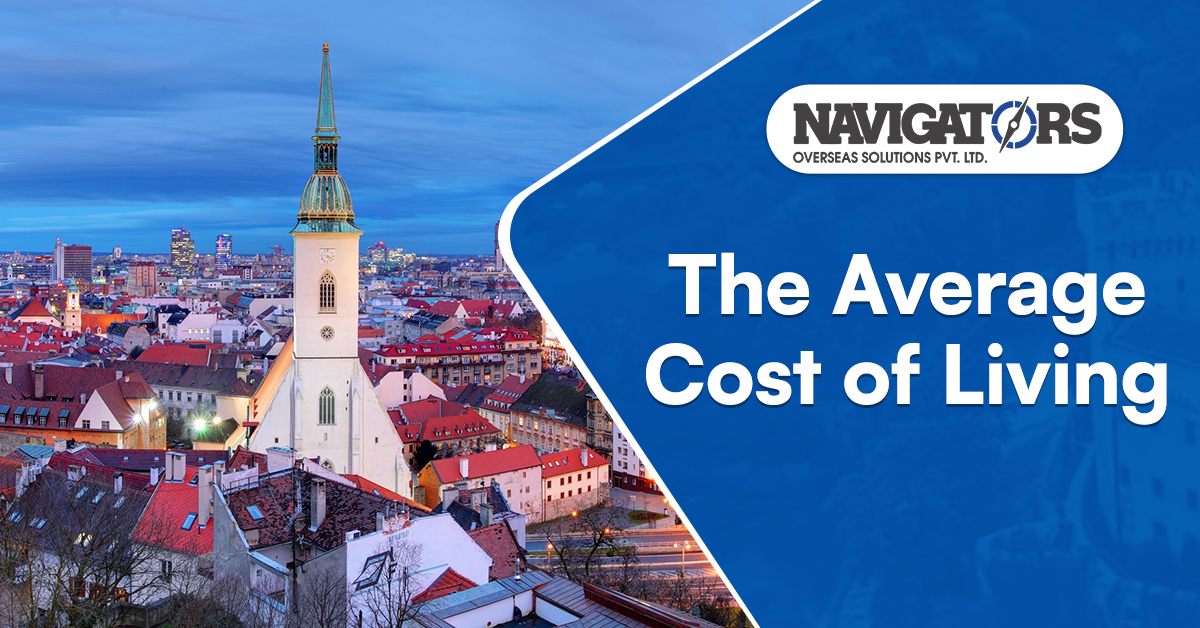- SCO 437-438, Top Floor, Sector 35-C Chandigarh
- +91 98090 90908
- navigators@ymail.com

Slovakia is a captivating country renowned for its breathtaking natural landscapes, including the majestic Tatra Mountains and picturesque lakes. It boasts a rich historical and cultural heritage, with charming medieval architecture in Bratislava, numerous well-preserved castles like Spis Castle, and vibrant folk traditions. The country is also notable for unique attractions such as the Ice Cave of Dobsina and Slovak Paradise National Park. Economically, Slovakia excels in the automotive industry and is emerging as a technology hub. Its cultural and historical significance is further highlighted by its UNESCO World Heritage Sites, including Banska Stiavnica and the wooden churches of the Carpathians. This blog gives a detailed information of eligibility requirement, application method and job opportunities for skilled workers in Slovankia.
Slovakia attracts skilled workers through a combination of economic opportunities, quality of life, and supportive immigration policies. The country’s growing technology and automotive sectors offer appealing job prospects and competitive salaries. Additionally, Slovakia’s strategic location in Central Europe provides access to a broader European market. The cost of living is relatively lower compared to Western European countries, which enhances its appeal. Supportive visa and work permit policies, coupled with efforts to streamline the relocation process, make it easier for skilled workers to move and settle in Slovakia. Whether you’re an IT expert, engineer, healthcare professional, or finance whiz, Slovakia is looking for skilled workers like you to power its dynamic industries.
Slovakia’s Blue Card is a work and residence permit for highly skilled non-EU nationals. It allows them to live and work in Slovakia if they meet certain qualifications, such as having a high level of education or professional experience and securing a job offer with a minimum salary requirement. The Blue Card aims to attract skilled workers to address labour shortages and promote economic growth.

To apply for the Slovakia EU Blue Card, you must meet specific eligibility requirements, including:

Despite the fact that Slovakia has the 13th highest annual wage among the EU countries, living expenses in this country are relatively substantial. Several industries in Slovakia are facing a crisis because of workforce shortages for years now. Thus, the country has compiled a list of the most demanded professions that foreigners can apply for. Once they are given a work contract, they can start procedures for getting a Slovakian work visa. In Slovakia, there is strong demand across several sectors:
IT AND TECHNOLOGY:
ENGINEERING:
HEALTHCARE:
FINANCE AND BUSINESS:
CONSTRUCTION AND SKILLED TRADES:
AUTOMOTIVE INDUSTRY:
TOURISM AND HOSPITALITY:
The average salary in Slovakia is around 1000 Euros, with hi-tech professionals earning approximately 2000 Euros. The minimum wage is close to 600 Euros. Residents of Bratislava, the capital, have the highest incomes but also face higher living costs. For a family of four, monthly expenses excluding rent are typically between 1000 and 1500 Euros.

The cost of living for international workers in Slovakia can vary depending on the city and lifestyle. Generally, Slovakia is considered to have a lower cost of living compared to many Western European countries. Here’s a rough breakdown:
Overall, the cost of living in Slovakia for international workers is generally moderate, with Bratislava being the most expensive city. Smaller towns and rural areas will be more affordable.
For more details call Navigators Overseas.